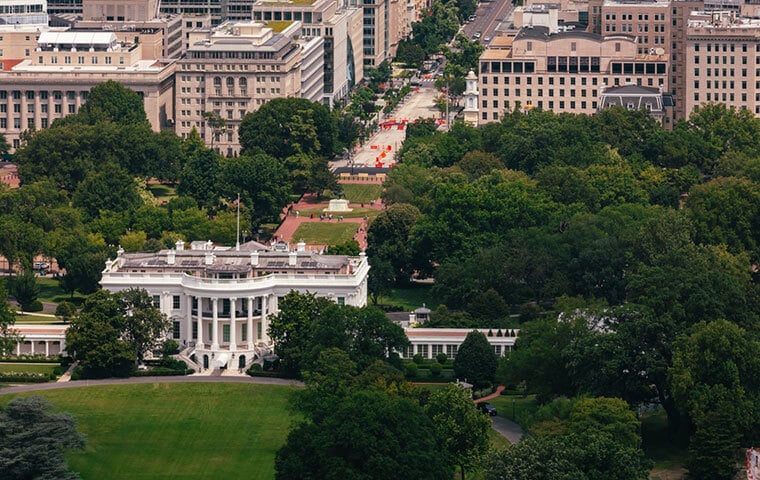 For positions at GS-5 and above, job vacancy announcements are to include essay questions that include an assessment of their commitment to Trump administration policies. Image: christianthiel.net/Shutterstock.com
By: FEDweek Staff
For positions at GS-5 and above, job vacancy announcements are to include essay questions that include an assessment of their commitment to Trump administration policies. Image: christianthiel.net/Shutterstock.com
By: FEDweek StaffOPM has ordered a range of hiring policy changes that range from routine steps to address long-recognized issues–such as the often-daunting length of the process—to the politically charged—such as an emphasis on selecting candidates who meet the administration’s definition of “patriotic.”
Says a memo on chcoc.gov, “The American people deserve a Federal workforce dedicated to American values and efficient service. Yet, Federal hiring criteria long ago abandoned any serious need for technical skills and adherence to the Constitution. Instead, the overly complex Federal hiring system overemphasized discriminatory “equity” quotas and too often resulted in the hiring of unfit, unskilled bureaucrats. The American people, who deserve a government that works for them, have suffered.”
While the primary focus of the ”merit hiring plan” is on recruiting from outside the government, many of the provisions also would apply to current federal employees seeking to change positions within the government. It follows an executive order to focus on “recruitment of individuals committed to improving the efficiency of the Federal government, passionate about the ideals of our American republic, and committed to upholding the rule of law and the United States Constitution.”
Among the provisions to carry that out is an initiative to have “patriotic Americans” in federal jobs, saying that hiring “too often focuses on elite universities and credentials, instead of merit, practical skill, and commitment to American ideals.” Among other things, that is to include targeting early-career recruitment at state and land-grant universities, religious colleges and universities, homeschooling groups, faith-based groups and 4-H youth programs.
In addition, for positions at GS-5 and above, job vacancy announcements are to include essay questions that include an assessment of their commitment to Trump administration policies (see related story).
The memo further orders eliminating DEI-related considerations in recruiting, hiring, retention and promotion of federal employees, to include ending “all special emphasis programs and other agency initiatives in the areas of hiring, recruiting, interviewing, training, professional development, internships, fellowships, promotion, or retention.”
Among the more routine aspects—some addressing criticisms of the hiring process going back many years—are expanding the use of standardized position descriptions, candidate inventories, talent pools, and shared certificates; expanding OPM’s talent analytics capabilities and increasing its use by agencies; and setting a time-to-hire goal of 80 days with new monitoring requirements.
Also included are further steps under a policy set by the first Trump administration that was one of its few federal personnel policies that the Biden administration had continued: eliminating degree requirements not essential to a position; using technical or other assessments of candidates; and ending self-assessments except for seasonal positions and those below GS-5.
Senate Eyes Vote to Pay Federal Employees Working Unpaid
Series of Bills Offered to Address Shutdown’s Impact on Employees
Public Starting to Feel Impact of Shutdown, Survey Shows
OPM Details Coverage Changes, Plan Dropouts for FEHB/PSHB in 2026
Does My FEHB/PSHB Plan Stack Up? Here’s How to Tell
2025 TSP Rollercoaster and the G Fund Merry-go-Round
See also,
TSP Takes Step toward Upcoming In-Plan Roth Conversions
5 Steps to Protect Your Federal Job During the Shutdown
Over 30K TSP Accounts Have Crossed the Million Mark in 2025

